 Iran’s Attack on Israel
Iran’s Attack on Israel
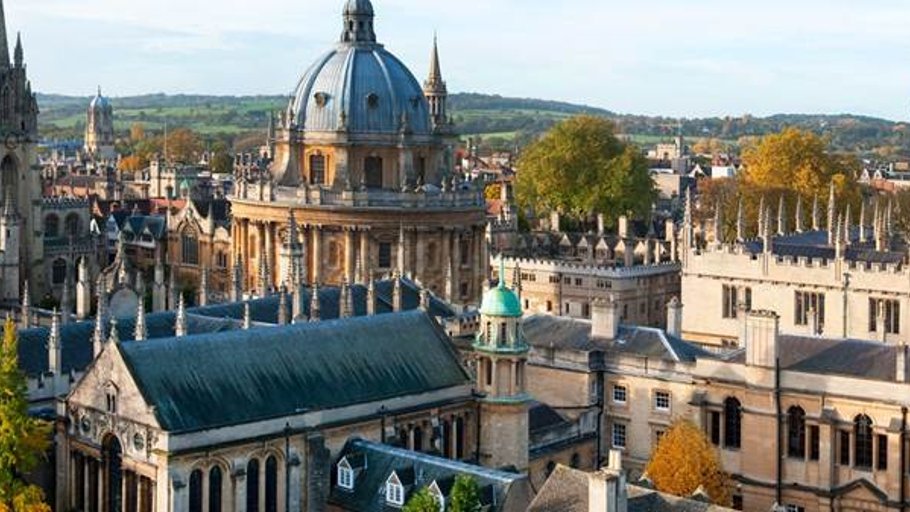

10 min read
The renowned university town was home to a vibrant Jewish community that is all but forgotten today.
Oxford, the famous university town in England, is world-renown for the scholarship of Oxford University. Yet the city boasts a little-known history too: Oxford was once home to a flourishing, vibrant Jewish community - one of the most significant in all of England – that is all but forgotten today.
Jews came to England in 1066 when French nobleman William the Conqueror invaded England. Jewish bankers had long supported military campaigns and infrastructure projects in France, and soon Jewish communities were lending money to support nobles and kings in England as well. (As the Catholic Church prohibited Christians from charging interest, only Jews were able to engage in lending and other complex financial transactions.)
Oxford became one of the largest English communities and Jewish families lived in a central area called “the Jewry.” One of Oxford’s central avenues today, St. Aldates, was once known as Great Jewry. By the end of the 11th Century, about 80-100 Jewish families called Oxford home. They made their living as shopkeepers, money lenders and landlords. As students flocked to Oxford, historians estimate that about 10% of lodging was rented out by Jews. The community was a distinguished one, with rabbis and scholars presiding over an educated, pious community.
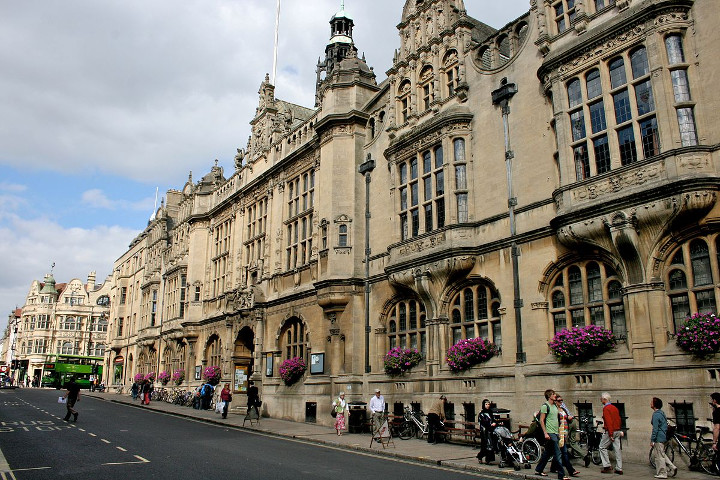 St. Aldates street
St. Aldates street
As England’s Jewish community grew, William’s son William Rufus seems to have enjoyed taunting his Jewish subjects. He used to arrange public debates on theological issues between Jews and Christians, and vowed that he would convert to Judaism if he ever felt that Jews had won. (No matter what, he always ruled that the Jews lost.) For all the humiliation this caused, these early Norman kings safeguarded England’s Jews, preventing the massacres and pogroms that routinely decimated Jews in Europe. This wasn’t due to altruism; English Jews enriched the crown. Each time a Jew died, one third of their estate was seized by the king.
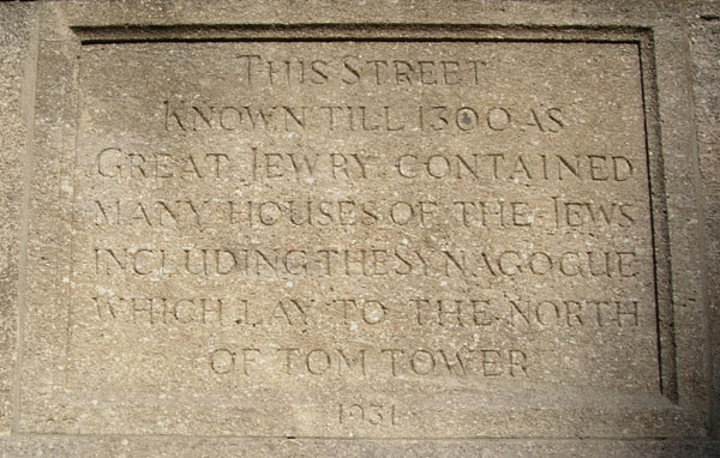 This inscription is on the Town Hall in St Aldate’s.
This inscription is on the Town Hall in St Aldate’s.
After King Henry I’s death, his heirs fought a 19-year civil war, with many of the battles waged in or near Oxford. Henry’s daughter Matilda gained allies in the area around Oxford and demanded money from Oxford’s Jews to fight her cousin Stephen, who was also contesting the throne. Oxford’s Jewish families had no choice but to pay her ruinous taxes.
After a battle in Oxford in 1142, Stephen gained control of the city and demanded yet more money from Oxford’s Jews. Facing potential ruin, the Jews refused - until Stephen burned down the home of a Jew named Aaron and threatened to do the same for all the Jews in the city. Oxford’s Jews somehow raised the funds to pay Stephen and avert this dire fate. Much of the fighting took place in Jewish residential area of Oxford. One of Stephen’s major fortifications was on a site known as “Jews Mound”.
Stephen was succeeded by King Henry II, who revolutionized finances in Medieval England by establishing a central “Exchequer” to keep track of all government spending. His son, the famed Richard the Lionheart, made Jews a key part of this system. Under Richard’s new system, all financial transactions were written on 25 pieces of parchment and placed in secure chests in 25 cities around England - including Oxford, where the Oxford Castle, in the heart of Jewish Oxford, housed the local records. Each chest had four keys, two held by Jews and two held by Christians.Richard even renamed his father’s system, calling Britain’s early accounting records the “Jewish Exchequer”.
Strictly speaking, the colleges that make up Oxford University weren’t a formal university when they were first founded; they were more like a cluster of independent schools. But it is notable that one of the oldest colleges was founded by a Jew. Balliol College, University College and Merton College were the first colleges to be incorporated in Oxford, between the years 1249 and 1264. Merton College was established in 1264; its deed of sale is the oldest surviving document in Oxford and shockingly, it is written in Hebrew.
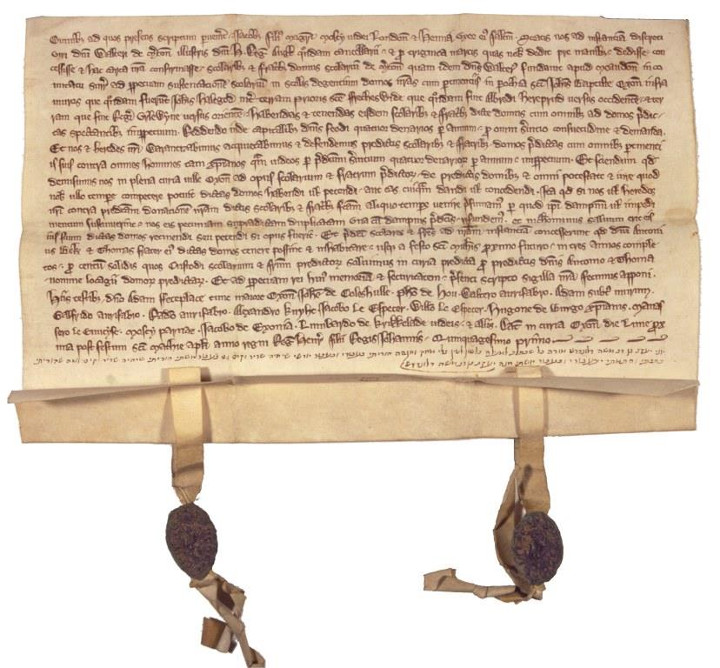 Merton College deed of sale.
Merton College deed of sale.
The document shows that a man named Jacob the Jew sold land for the purpose of establishing Merton College. Jacob seems to have worked in partnership with a local official, Bishop Walter de Merton. The deed was likely written by Jacob in his native language, Hebrew. It also contains Latin writing, reflecting the common language spoken by academics in Oxford at the time. While he helped found Merton College, it would have been impossible for Jacob’s sons to study in there. Jews were strictly barred from Oxford and would remain so for over 500 years.
Tensions between Jews and Christians were never far from the surface in Oxford. In 1244, a group of Oxford students ran wild, attacking Jews in the streets of Oxford and ransacking Jewish-owned houses. Local Jews begged the Constable of Oxford for help. He obliged, arresting 45 students, and imprisoning them in Oxford Castle and a local jail until the violence ebbed.
Anti-Jewish violence began to sweep England in the 12th and 13th centuries. While Oxford never experienced the wholesale massacres that decimated Jewish communities elsewhere in England, life became precarious in the extreme for Oxford’s Jewish families.
During one pre-Easter parade in 1268, students accused a Jew of attacking the university procession and stomping on a crucifix. Authorities rounded up the entire Jewish community of Oxford and imprisoned them until King Henry III came up with what he thought was a fitting punishment and forced the Oxford Jewish community to raise funds for a huge marble and gold crucifix, with verses carved into the base insulting Jews. Originally the king ordered this monstrosity to be erected outside Oxford’s synagogue; eventually he relented and had it housed in Merton College instead. (The crucifix disappeared sometime later, though archeologists have recovered chunks of marble from the area which might be part of the royal structure.)
In 1290, King Henry III’s son King Edward I ejected all Jews from England. Up to 40,000 Jews were forced to flee and England remained officially Jew-free until British Leader Oliver Cromwell formally invited Jews back into England in 1656.
One Jew did publicly attend Oxford during this time, though he had to formally profess he embraced Christianity to do so. German-born Jacob Wolfgang matriculated in 1608 and endured years of anti-Semitic bullying and violence. At least one witness described students and tutors making fun of his Greek pronunciation and throw rotten eggs at him during lessons with impunity.
Though Jews were banned from living in Britain openly, one brilliant scholar was allowed to teach Hebrew there. Jacob Barnet (known as “Jacob the Jew”) taught Hebrew to Oxford students in around the year 1600.
Jacob befriended a non-Jewish Oxford scholar, Isaac Casaubon, who repeatedly pressured Jacob to convert to Christianity. Doing so would have opened up new doors for Jacob, allowing him to flourish professionally and socially. In 1609, Jacob finally relented, telling Casaubon that he would convert. His colleagues were overjoyed. University officials started planning a grand conversion ritual in the official Oxford University church of St. Mary’s, in a huge ceremony attended by the entire university. As plans for this major event grew, Jacob had second thoughts, deciding to cling to his Jewish faith after all.
The day before the ceremony, Jacob ran away from Oxford. University authorities ordered local police to find him and Jacob was arrested on the road to London and imprisoned in Bocardo Prison in Oxford. The university chaplain went ahead with his public sermon, issuing a fiery speech, smearing Jews as untrustworthy and evil.
Even before Jews were officially allowed back into England in 1656, at least one enterprising Jew opened the very first coffee shop in the country. It was located in Oxford at 84 High Street, established in 1651 by a man called (like previous Oxford Jews) “Jacob the Jew”. Coffee was just beginning to become popular in Europe, and Jacob introduced the new beverage to the students and teachers of Oxford’s storied colleges.
Just a few years later, in 1654, another Jew named Cirques Jobson (some speculate that he was the same Jacob the Jew opening a second branch) established the Queens Lane Coffee House nearby: Oxford’s second coffee shop, and one that continues to serve coffee to this day.
With liberalism sweeping much of England and academia in the 1800s, old barriers began to fall away. Openly Jewish students were allowed to study at the university beginning in 1856. Despite this, snobbery and prejudice kept the number of openly Jewish students very low. When Sir Isaiah Berlin, one of England’s most celebrated philosophers, began teaching in All Souls College in 1932, he was only the fifth openly Jewish teacher working in the university.
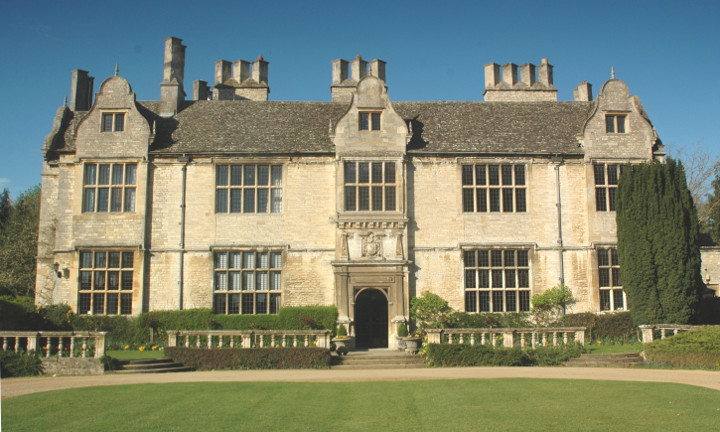 Former Home of Oxford's Center for Hebrew and Jewish Studies
Former Home of Oxford's Center for Hebrew and Jewish Studies
Oxford became markedly easier for Jews to study in when Dr. Cecil Roth, one of Britain’s greatest historians, became a reader in Jewish Studies there in 1939. An Orthodox Jew, Dr. Roth successfully petitioned the university to allow Jewish students to take exams on Sundays instead of Saturdays, the Jewish Shabbat. Since the university didn’t want Jews to gain an unfair advantage by quizzing their classmates about what was on exams, Dr. Roth proposed a simple solution: Jewish student would spend Shabbat, when their classmates were taking exams, at the Roths’ home in Oxford. They stayed there until it was time to take their own exams on Sunday. The Roth home was a popular meeting place for Jewish students until the mid 1960s, when Dr. Roth moved from Britain to Israel.
Many of Oxford’s beautiful colleges date back hundreds of years, but one of its newest was founded in 1966 by a remarkable Jewish philanthropist.
Sir Isaac Wolfson was born in 1897 in Glasgow, the son of Jews who’d fled pogroms in Russia. He was raised in poverty and built up one of Europe’s largest businesses, Great Universal Stores, which ran the largest mail order business in Europe and operated thousands of department stores across Britain. Sir Isaac made a fortune, but his greatest pleasure was in giving away the money he’d earned. He formed the Wolfson Foundation in 1955 with the aim of educating young people, and he endowed schools and professorships in Israel and Britain.
This Jewish son of working class immigrants also founded a new Oxford College: Wolfson College, established in 1966. (He also established a Wolfson College in Cambridge, single-handedly altering the landscape of higher education in Britain.) Wolfson College’s first president was the Jewish philosopher Sir Isaiah Berlin, who declared Oxford’s most modern college to be an experiment in “new, untrammeled and unpyramided” education. Wolfson College continues to educate over 600 graduate students within the university each year.
Sir Isaac Wolfson died in 1991 in his home in Rehovot, Israel.
